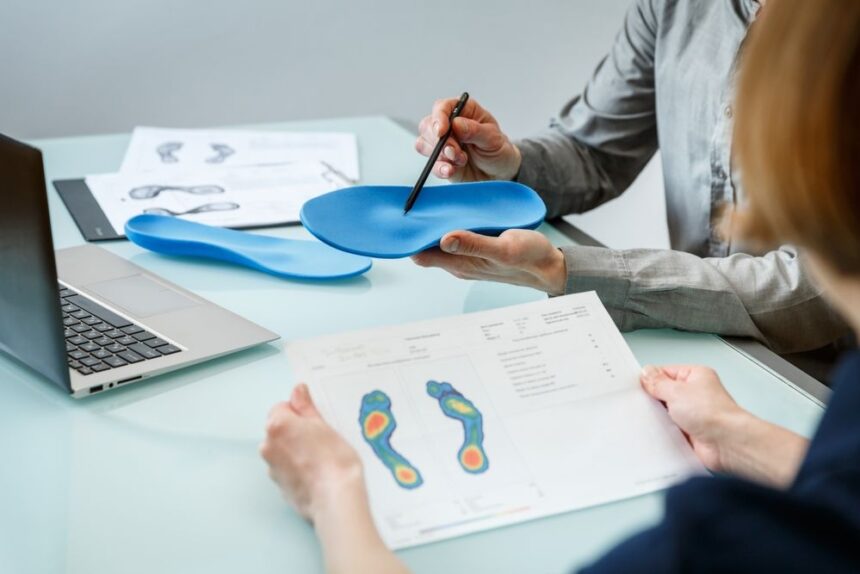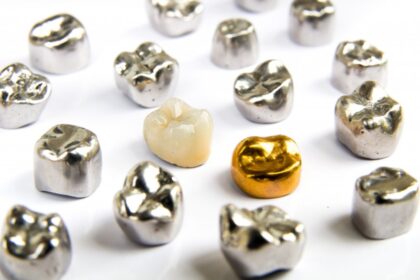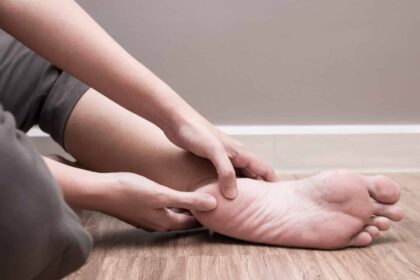Foot pain can interfere with daily activities, mobility, and overall well-being, but the right support can make a lasting difference. Orthotics play a fundamental role in managing foot pain by improving alignment and supporting proper movement. Whether caused by conditions like plantar fasciitis, flat feet, or arthritis, orthotics provide targeted relief while promoting long-term foot health.
Understanding Orthotics
Orthotics are custom-made or over-the-counter devices designed to support, align, and improve foot function. These shoe inserts address structural problems in the feet and lower legs. Healthcare providers prescribe orthotics to treat various conditions, including plantar fasciitis, bunions, and flat feet.
The primary purpose of orthotics is to correct biomechanical issues that cause pain and dysfunction. These devices redistribute pressure across the foot surface and provide support to areas that are weakened. It also helps control abnormal motion patterns that contribute to foot problems. A professional assessment determines the type of orthotic support required for each individual. Podiatrists evaluate foot structure, gait patterns, and pain symptoms to recommend appropriate treatment options.
Exploring How Orthotics Help
Orthotics address foot pain through several key mechanisms:
- Foot realignment: Orthotics realign the foot structure to reduce stress on painful areas. This correction helps restore normal biomechanics and alleviates strain on muscles, tendons, and ligaments.
- Pressure redistribution: By spreading weight more evenly across the foot surface, orthotics help reduce pressure at concentrated points.
- Arch support: Many foot problems result from inadequate arch support, causing overpronation or supination. Orthotic insoles provide proper arch support, promoting foot stability and reducing discomfort.
- Shock absorption: Orthotics offer cushioning properties that absorb impact forces during walking or running. This protects the feet and is beneficial for individuals with heel pain and joint problems.
These mechanisms work together to address the underlying causes of foot pain, providing both functional and long-term relief.
Choosing the Right Orthotics
Selecting appropriate orthotics requires professional evaluation and guidance. Podiatrists assess foot structure, pain patterns, and activity levels to determine the most suitable option. The evaluation process includes gait analysis and examination of existing foot problems.
Custom orthotics offer precise correction for specific foot issues. These devices are created from molds of the patient’s feet and provide targeted support for individual needs. Custom options work best for complex foot problems and severe pain conditions.
Over-the-counter orthopedic supports provide a convenient alternative for mild to moderate foot issues. These pre-made devices come in various sizes and support levels. While less precise than custom options, they can provide significant relief for many common foot problems.
Integrating Orthotics Into a Plan
Orthotic insoles are most effective when used in conjunction with other treatment approaches. Physical therapy exercises help strengthen foot muscles and improve flexibility. Proper footwear selection supports the function of orthotic devices and prevents further problems.
Activity modification may be necessary during the initial adjustment period. A gradual increase in wearing time allows the feet to adapt to the new support system. Most patients require several weeks to fully adjust to their orthotic devices.
Regular follow-up appointments help monitor treatment progress and make necessary adjustments. Podiatrists evaluate pain levels and functional improvements to optimize orthotic therapy and treatment. Modifications to the devices may be needed as conditions improve or change.
Get Your Custom Orthotics Today
Orthotics is a proven, non-invasive approach to managing foot pain. These devices address the root causes of many foot problems by correcting alignment and providing targeted support. A professional evaluation helps determine the most suitable orthotic solution for individual needs. For persistent foot pain, schedule a consultation with a qualified podiatrist for a professional assessment and custom orthotic fitting.









